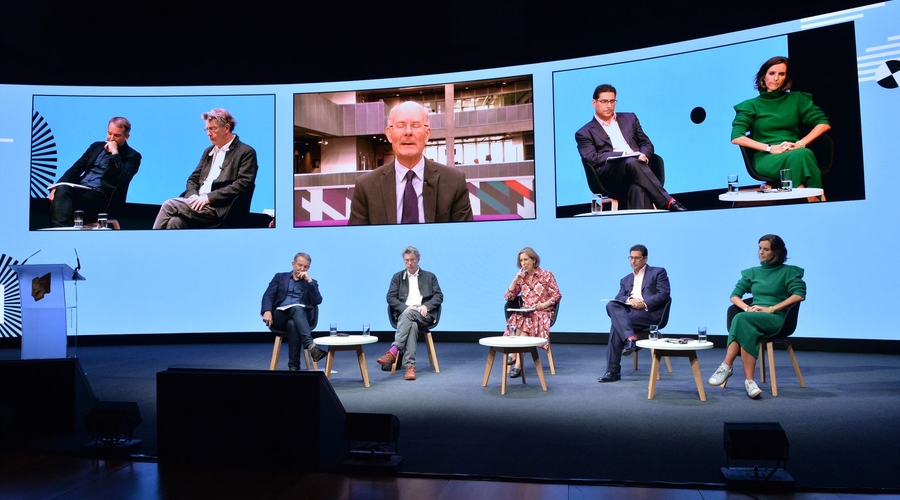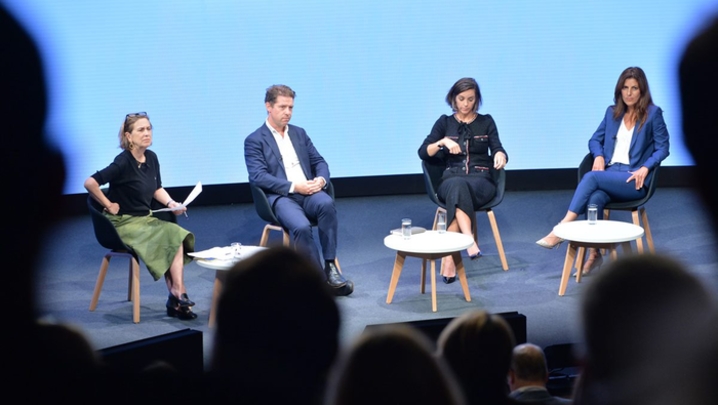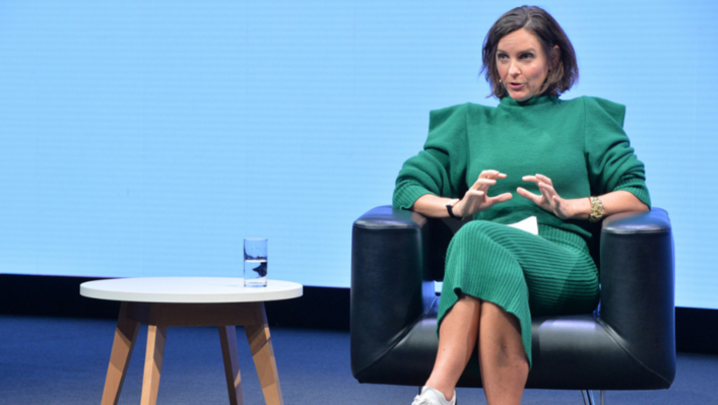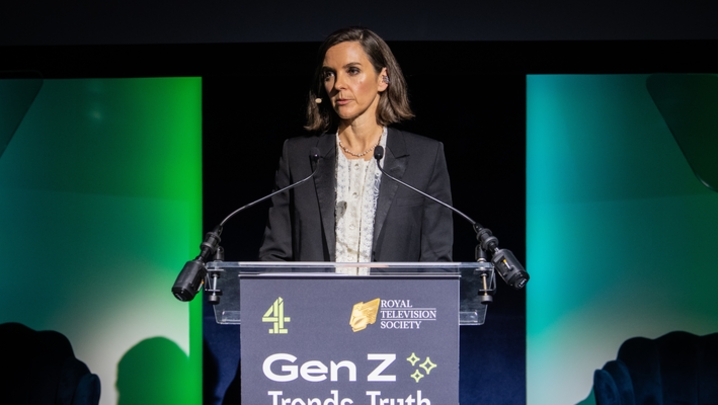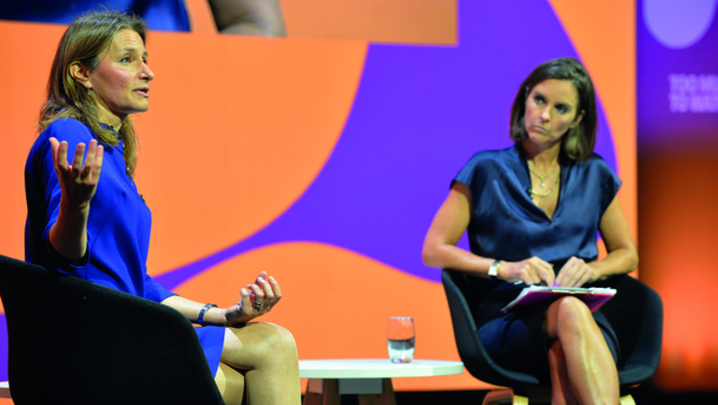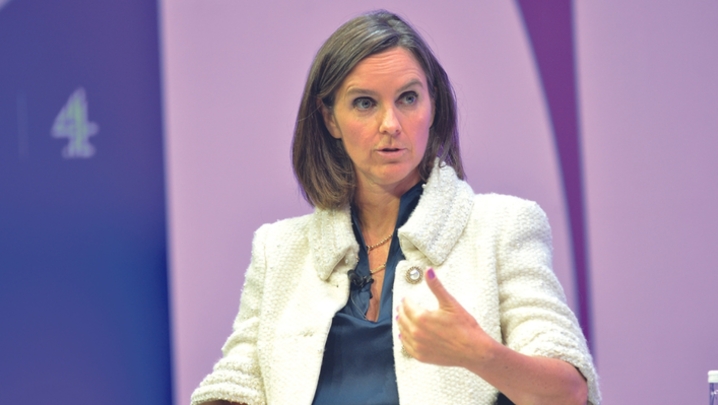What would the break-up of UK plc mean for broadcasters – and how should their newsrooms cover the debates right now?
The threat to UK television from US streamers is growing, but there is also danger closer to home – the potential break-up of the country and a subsequent loss of “Britishness”. If independence movements flourish and the UK starts to fragment, how should broadcasters and producers respond?
Election polling guru John Curtice set the scene for this session via video link. “The UK state now seems to be under more threat than ever,” he said. Scotland is edging towards another independence referendum and the next Northern Ireland Assembly election could produce a Sinn Féin First Minister.
Even in Wales, he added, “there is now at least much more talk about independence” and “a more nationalist England is now also less happy about the advantages that the rest of the UK enjoys”.
Curtice suggested that broadcasters would have to increasingly consider the nature of their news and cultural coverage if the UK started to break up. There could also be regulatory issues to address. He asked: “How should the broadcasters, who are meant to be impartial, negotiate these potentially choppy waters?”
Channel 4 boss Alex Mahon said the broadcaster’s move out of London – it now has offices in Bristol, Manchester, Leeds and Glasgow, and will spend 50% of its budget outside the capital – meant it had “people with a different perspective making decisions… that starts to allow us to represent better across the UK”.
John Whiston said ITV “had regionalism in its blood”. He added: “I’ve made 600 hours of television in the past two years, and the furthest south I’ve been is Macclesfield.
“The further away you go from London, the more popular the channel is – and that’s not the same for the BBC and Channel 4.”
Whiston added that the Covid-19 pandemic had changed the nature of commissioning: “You don’t have to be in the room to get a commission these days. I’ve spent the last two years on Zoom and it’s worked perfectly well. [The pandemic has been] a real force for regionalisation.”
Rhodri Talfan Davies, the corporation’s director of nations, claimed “the BBC has been adapting to the changing nature of the UK for the best part of a quarter of a century”. It had decentralised and now employed 8,500 people outside the M25.
Turning to the challenges of covering a second independence referendum in Scotland, Davies said the key would be to display “journalistic self-confidence. Any vote of this sort of binary nature is going to be colossally polarising.”
If Scotland were to become independent, there would be significant regulatory issues, said the media consultant Chris Banatvala. “There is so much architecture around broadcasting and it is a very ‘regulated environment’ – that [could] takes years [to sort out].”
Whiston said: “ITV won’t take a side on whether Scotland should be independent or not, but what it will do is warn, ‘If you fragment the nation too much, then who’s going to pay for these programmes?’
“We’re actually victims of our success because people expect much more localism… much more globalisation, so we’ve created this very, very rich TV environment but, going forward, it’s quite hard to see how it’s going to be paid for.”
Mahon accepted there was a “decreasing sense of Britishness” among young people, but added: “I don’t think we see a demand from the audience to only see content from smaller and smaller areas. They want a diversity of perspectives… and a range of content.”
During the pandemic, argued Whiston, the public service broadcasters had acted in the national interest. “We stayed on air with daytime, with the soaps and with news – people needed the public service broadcasters at that time to reflect what was going on… if you’d watched a streamer at that time, you wouldn’t even have known the pandemic was going on.… The public service broadcasters were a force for unity.
“That’s problematic in a way for the nations because they’re actually, if they’re going to get a referendum,… more about disunity than unity.”
Kirsty Wark, who chaired the session, asked Davies whether he accepted the argument that the different responses of the devolved regions to Covid-19 were designed “to stoke disunity”?
“No, I don’t,” he replied. “To simply assume that the only motivation on Covid restrictions in the devolved nations was to piss off London, I think that’s…”
Whiston interjected: “I didn’t say it was the only motivation, but I think it perhaps was at the back of some people’s minds.”
Curtice, in his final contribution to the session, turned to Welsh independence: “The big question for Wales is, ‘How much time should be addressed to what, at the moment, still looks a relatively remote possibility – is it important to cover it… or is it, in fact, still premature?’
“It might be interesting for the chattering classes in Cardiff and Aberystwyth, but perhaps it’s not yet [a debate] for national broadcasting within Wales.”
Davies replied that, while support for independence had grown, “it’s not yet a high-ranking issue. When we look at the election results, we don’t see it as a primary driver of the vote, much beyond Plaid Cymru.”
Summing up, Mahon argued: “People want representation, they want recognition and they want opportunity. People want to know what’s going on in their region, but they don’t necessarily want regional parochialism in smaller and smaller places – that is what we saw in the pandemic; they wanted to know what was going on in the whole country.”
“Representation” was also important for Whiston: “People want to be represented on a big stage.”
The ITV real-life crime drama The Pembrokeshire Murders, he said, pulled in an audience of 12.5 million – “a huge reach for a drama. We’ve done that right across Britain: we make Shetland for the BBC in [Scotland]; we’ve done Vera in the North East.”
Wrapping up the session, Wark asked Banatvala whether he thought the streamers would think the RTS session “incredibly parochial, given how little young people watch anything other than streamers”.
“Yes,” he replied. But “people always want to watch programmes about themselves and their own region. I don’t think [British broadcasters are] doomed… people aged 16-25 or even older… will watch anything as long as it’s good – it’s as simple as that. That might involve parts of the UK; it might not.”
Session Four: ‘This disunited kingdom’. The contributors were: Chris Banatvala, consultant; John Curtice, professor of politics at the University of Strathclyde; Alex Mahon, Chief Executive, Channel 4; Rhodri Talfan Davies, director of nations, BBC; and John Whiston, Managing Director for continuing drama and head of ITV in the North, ITV Studios. It was chaired by the journalist and broadcaster Kirsty Wark and produced by Alan Clements. Report by Matthew Bell.

